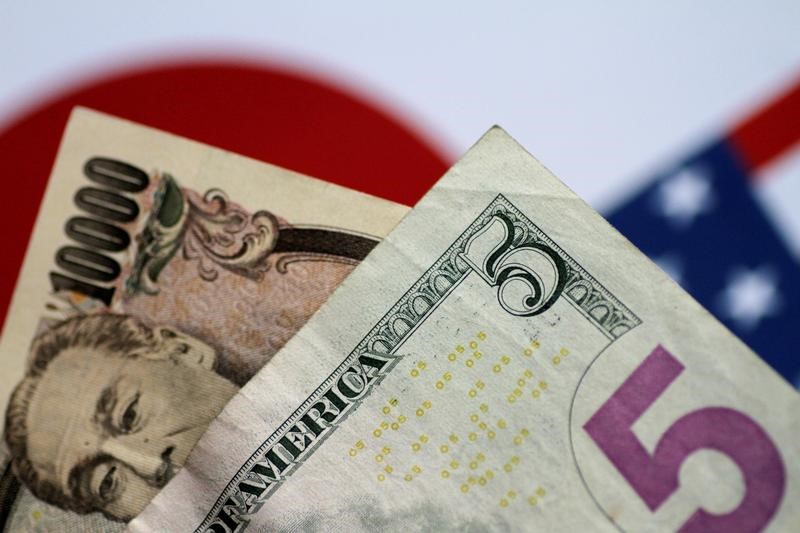Investing.com — Most Asian currencies gained ground on Wednesday as the dollar retreated in the wake of a fiery presidential debate in the US, with the focus shifting to key inflation data due later in the day.
The Japanese yen was one of the biggest beneficiaries of this trade, with increased demand for safe havens following the debate pushing the yen to its strongest level since early January. The yen also benefited from somewhat hawkish comments from Bank of Japan officials.
Broader Asian currencies rose on Wednesday after some relief from a softer dollar. But regional markets continued to post steep losses last week as risk appetite declined.
Dollar falls after presidential debate; CPI waited
The and both fell about 0.2% in Asian trading, with losses in the dollar following in the wake of a fiery presidential debate between Kamala Harris and Donald Trump.
The debate boosted expectations for a hotly contested presidential race in 2024, which could pose a major point of uncertainty for markets given the opposing policy views of both candidates. Harris and Trump both deviated from the topics presented and made personal attacks on each other.
The dollar also lagged key inflation figures due later in the day, which are widely expected to provide further clues about interest rates.
The figures come just a week ahead of a , in which investors expect the central bank to cut rates by at least 25 basis points.
Japanese yen at eight-month high on safe-haven demand, BOJ Hawkspeak
The yen performed best in Asia, with the pair falling 0.8% to 141.38 yen, the lowest level since early January.
The currency benefited from a number of safe havens as uncertainty over the US elections increased after Tuesday’s debate.
But a key support for the yen was hawkish comments from BOJ member Junko Nakagawa, who said the central bank will continue to raise rates if inflation moves in line with its forecasts.
Nakagawa’s comments come after a slew of aggressive signals from the BOJ, and were also made just a week before a BOJ meeting. Investors are uncertain about a new interest rate hike by the central bank, after a 15 basis point rate hike at the end of July.
Broader Asian currencies advanced, albeit slightly, as attention turned to the upcoming US CPI reading.
The Chinese yuan pair fell 0.1%, but the yuan remained in the background as US policymakers proposed another set of trade restrictions against Beijing.
The South Korean won pair fell 0.3%, while the Singapore dollar pair lost 0.2%.
The Indian rupee pair remained steady around 84 rupees, while the Australian dollar pair remained flat after falling from a nine-month high last week.


